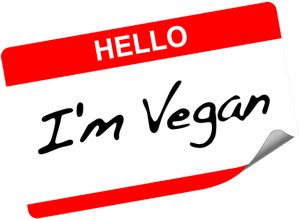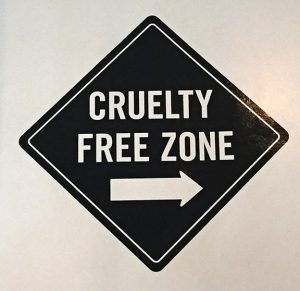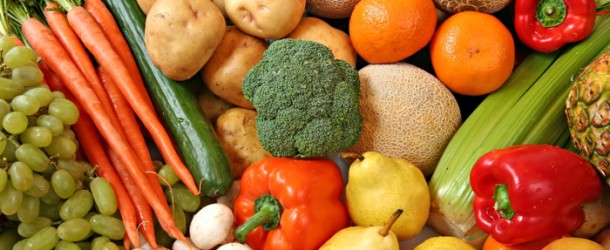 “You’ve a vegan? Does that mean you’re from planet Vega?”
“You’ve a vegan? Does that mean you’re from planet Vega?”
“So you’re one of those va-guns?”
“Vegan? I’ve been hearing that word a lot lately. What does it mean?”
“Do you eat fish?”
“If you’re vegan you can’t have the ham, but you can have the egg salad.”
“But where do you get your protein?”
“If you don’t eat meat and dairy, what do you eat?”
I’ve been eating meatless for half of my life now, so I’ve heard all of these questions and more. One of my goals as a blogger has been to show off exactly what vegans do eat, and to prove that following a meatless diet doesn’t mean sacrificing taste. Today, I’d like to answer some of the other questions I’m often asked, and maybe dispel some of the false information floating around out there. Some of the questions that come up a lot have to do with what a vegan actually is and what they eat. In order to answer that, I’m going to explain the different types of meatless diets.
Pescetarian – I’m starting off with pescetarian because “Do you eat fish?” is the one question that makes vegans and vegetarians cringe more than any other, so I’d like to get it out of the way from the get-go. Pescetarians are people who eat fish, but no other meat. They are different from vegetarians. Fish come from the animal kingdom, so people who eat fish cannot be considered vegetarians.
Vegetarian (Sometimes called ovo-lacto vegetarian) – Vegetarians don’t eat meat, but they do usually eat eggs and dairy products, such as cheese, ice cream and yogurt. Included in the definition of meat is any flesh that comes from an animal, so fish, chicken, pork and beef are not on the menu in a vegetarian diet. Vegetarianism has been around long as there have been humans on the planet. People who adopted this type of diet were once called Pythagorians, after the Greek philosopher Pythagoras, who was a vegetarian and expected his followers to be as well. The word “vegetarian” was first used in the 1840s after the formation of the Vegetarian Society in the U.K. The group’s founders said that the word was derived from the Latin word “vegetus”, which means lively or vigorous.
Ovo-Vegetarian – A vegetarian who eats eggs but not dairy products.
Lacto-Vegetarian – A vegetarian who eats diary products but not eggs.
Vegan – Vegans don’t eat anything derived from an animal, so in addition to eschewing meat, they avoid dairy products, eggs, honey, and animal derived ingredients such as gelatin. Veganism is more of a lifestyle than a diet, as most vegans also avoid products made from animals in their day-to-day life. That means no leather, wool, silk, down, shell, or products tested on animals. It may sound like deprivation to someone who’s not familiar with it, but vegans are more focused in what they can include in their lives rather than what they can’t. Veganism is growing, which means that there are many amazing vegan products on the market now, from rich and creamy nut based cheeses to beautiful non-leather handbags. The term “vegan” was coined in 1944 by Donald Watson, who was co-founder of the British Vegan Society.
Plant-Based Diet – The term “plant-based diet” is being used rather frequently these days, and it can have several meanings. Sometimes it’s synonymous with the word “vegan”, and is used by people who are afraid the word “vegan” conjures up images of animal rights extremist. (Or by certain food bloggers who don’t want to use the term “vegan” 80 times in one post.) It can also refer to someone who follows a vegan diet but isn’t yet on board with the lifestyle part of it, or can refer to someone who follows a vegan diet but doesn’t eat any so-called junk food such as potato chips or cupcakes. Another use for the term plant-based diet would be someone who mainly follows a vegan diet but occasionally eats a little bit of meat.
Raw Vegan – A raw vegan is exactly what it sounds like – a vegan who doesn’t eat cooked food. People on a raw food diet usually consume between 80 to 100 percent of their foods in an un-cooked state, but they can heat them up to 104°, and dehydrators are often used. It may sound restrictive, but there are tons of creative things that be done with raw food, and the results are usually incredibly delicious. I’m a big fan of raw kale chips and dehydrated crackers.
 There are other terms that are sometimes used to describe a meat-free diet, such as “plant-strong” or “veganist”, but they’re usually the result of an author trying to introduce the meatless diet to a new audience.
There are other terms that are sometimes used to describe a meat-free diet, such as “plant-strong” or “veganist”, but they’re usually the result of an author trying to introduce the meatless diet to a new audience.
So why go meatless in the first place? Different people have different reasons such as ethics, health, the environment or religion. Whatever the reason, this way of eating is on the rise, and Google recently reported that there’s been a sharp incline in the number of people searching for vegan topics online.
As for where I get my protein? Well, that’s the subject of another post.
